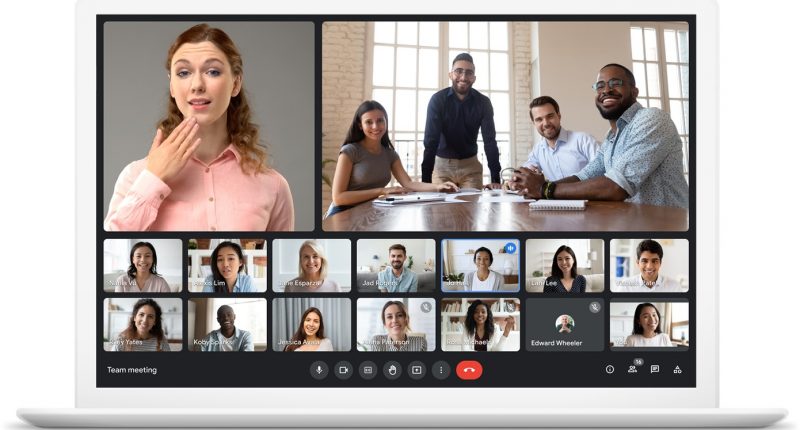Over the last year, Google Meet has become indispensable to millions, as people grappled to get used to the “new normal”. Hours upon hours of meetings on Google Meet have become the norm these days, but there has been a development that free Gmail users might not be too happy about. Google Inc. has announced that it will be putting an end to the unlimited group video calls on Meet for users who have a free account. This means that now, users with free accounts will have their group calls capped at one hour, instead of the previous allowance of 24 hours.
The news was first broken by Mashable, and claims that any Google Meet call with more than two participants, or just any group video conference in general, will not be able to exceed over 60 minutes now, if the users have free personal Gmail account.
Interestingly, this cap is not new, and instead, was supposed to be introduced in September last year, when it was temporarily done away with and postponed till March 31st 2021, owing to the pandemic, and the growing need for video conferences.
This had meant that free account users had been able to make use of the full array of features on the platform, and that too, without any cap on the meeting duration. However, the same is not true as of July 1st. The previous deadline of March 31 had been extended for another three months, but alas, all good things come to an end.
Google said in it’s statement that the hosts will have to upgrade their Google accounts in order to extend the Meet. “Tip: At 55 minutes, everyone gets a notification that the call is about to end. To extend the call, the host can upgrade their Google account. Otherwise, the call will end at 60 minutes,” it read.
Fellow online video conferencing platform Zoom too, has quite a similar policy. While its one-on-one calls remain free and unlimited, the cap on group calls is at 40 minutes. However, the upper limit is often extended on meetings held during holidays like Hanukkah, Christmas, and New Year’s Eve. However, it remains to be seen if Google, too, will adopt a similar strategy.
The Tech Portal is published by Blue Box Media Private Limited. Our investors have no influence over our reporting. Read our full Ownership and Funding Disclosure →






